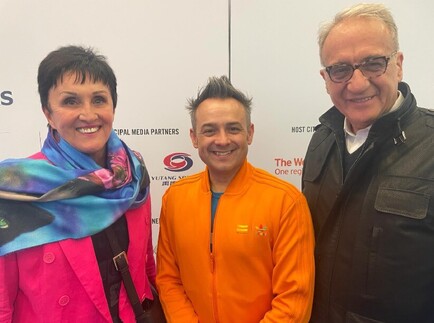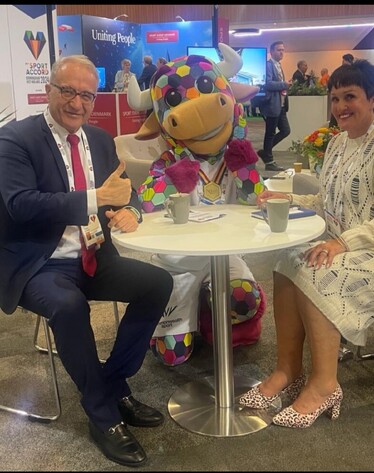Sport Accord Summit, Birmingham, UK April 2024
Submitted by Meri Gibson.
What an adventure it was to be able to get to the SportAccord on time. I finished my role as Event Safety Director at the New Zealand Dragon Boat National championships, hopped in a car and drove two hours to Auckland to get ready to board a flight to Dubai with a short stop over and then on to Birmingham. I had been flying for 25 hours plus the wait time of two hours in between connections in Dubai. I arrived on a Sunday afternoon in Birmingham only to be told that I had a meeting for dinner that evening with the President of the International Canoe Federation.
In some countries the Canoe Federations represent Dragon boating, so we happen to have a lot in common, however International Dragon Boat Federation (IDBF) is the recognised Federation for Dragon boating as part of Alliance of Independent Recognised Members of Sports (AIMS). AIMS is for international Sport Federations that have not yet been recognised by the Olympics but are recognised as sports, IDBF belongs to AIMS. Whereas Association of IOC Recognised International Sports Federations (ARISF) is for sports recognised by the Olympics, this is the one that IDBF needs to belong too if we are to have any chance of getting to the Olympics as a sport, but that pathway is currently blocked by the International Canoe Federation. So, you can imagine that having dinner with the President of the ICF made for an interesting evening as with a little jet lag on board I spoke my mind.
This was a huge learning curve for me in terms of a lot of the structure and how it works there are so many acronyms for the different associations.
Our goal at IDBF is to become a member of ARISF. Whilst we as breast cancer dragon boaters are principally concerned with participation there are those breast cancer survivors who do wish to be on a more competitive pathway and as part of that we are working collaboratively with IDBF to ensure that we can create this pathway.
There was no time to have jetlag or to not be 100% on form as the meetings were coming at me thick and fast as were the workshops and plenary sessions.
I attended a particularly good session on the Sport industry as a climate action enabler. This was remarkably interesting to me because as I said had just come off the New Zealand championships where we had instigated a number of matters around sustainability to ensure that the environmental impacts were as low as possible. I was able to share these measures at the workshop, they included having a carpark fee of five dollars to cut down on the number of vehicles that came to the event to help mitigate carbon emissions. To stop the use of plastic and cardboard on site we had a take home ceramic coffee cup for sale and a refillable keep cup, these two measures cut down dramatically on cardboard and plastic waste.
The merchandise clothing for sale was made from recycled plastic, again ensuring that there was much efficiency in terms of clothing sales. We also instigated to washdown gear to mitigate the transfer of any organisms from one site to the other. We sold aluminium water bottles to refill rather than plastic bottles being purchased or given away. Those of you who were at the IDBF world championships in Thailand will recall seeing the 20’containers full of pallet loads of plastic water bottles, where those went to once they have been used but this was no doubt a huge issue in terms of disposing of those. So refillable bottles are an effective way to mitigate this. Ensuring there was clean potable available on site is of course critical. We also made sure that all volunteers were given a refillable water bottle so that they could refill those easily. Another suggestion to offset the carbon emissions impact is to plant trees at the race and training sites.
The consensus was there needs to be a commitment to reduce the emissions through energy use travel for athletes and wastage on site. The catch cry from this for me became “paddle fast but act faster.”
There were workshops around transparency and sustainability and whether we should be setting regulations and standards, whether we should be advocating for policy change and in the selection of venues for their sustainability standards. How do we engage in environmental education programs? Do we as an organisation put together Events sustainability guidelines. Alongside this there must be athletic conduct guidelines and there must be sustainability within the governance level. Again, transparency is the key.
One of the other workshops that I attended was the health accord and this related particularly to female athletes and mental fitness. It was noted that particularly for female athletes there were issues around self-belief, respect and how do women inspire in the world of Sport. Paris will be the first Olympics with full gender equality that is: both male and female. There was a general consensus that for women health in sport is incredibly important as it can be like life in a travelling circus and that there is significant psychological distress, anxiety, depression, and performance anxiety and this can relate quite strongly to breast cancer paddlers as they have come from a position of illness and then to be expected to perform at their best may just be too much. What we must do as leaders is navigate the road to well-being. Something that we can look at for future festivals is that there is a mental health area where people can chill out, that we consider people with disorders such as ADHD, OCD etc.
They were two catch cries for me that I came away with from the health accord and they are “to discover yourself, you must first lose yourself.” And that you need to “shut off the circus, get away from the chaos.”
The other impact for me are we up skilling the coaches enough to understand what the athlete is going through.
My biggest impact from this accord was around safeguarding and particularly for women athletes. The issues stem around harassment, abuse, and discrimination. These are all things that I know many have seen in their own crews, we need to be cognisant of these issues. We need to listen to the athlete’s voice. It is important for us to understand what the athlete experiences and I am sure that there needs to be more innovative research in this space away from the laboratory and more about the qualitative, talking directly to those concerned.
Governance is always an area that I am extremely interested in and the Law Accord sessions were interesting around the benefits and challenges of independent and integrity units in international sport. These bring into areas such as law and governance. One area we should be concerned with is athlete manipulation, harassment, and abuse feature strongly.
One of the other areas that I found interesting was the City Accord and this looked at how you hold events inside a city. We must be aware that it is more than just an event. We need to be creating a more engaging inclusive event which appeals to fans, the residents, and athletes alike. The term festival came up and how far do we go with that. Thinking about France and 2026, what does that look like? Do we create a legacy of sustainability to lead to the contribution of a strong, diverse economy, whilst ensuring sustainable growth and the retention of the enviable lifestyle that all residents and visitors to that area can continue to enjoy into the future? What does the entertainment inside and outside the venue look like? Is there a lot of activation around? Do we need to think about the cultural elements?
Another area of great interest to me was digitisation. How do we digitise our Sport to make it attractive? Do we build avatars? Do we get involved with AI? Imagine a virtual Dragon Boat race. It is such an interesting field to think about for the future. Professor Andy Miah who was taking this session said, “Once a new technology rolls over you, if you’re not part of the steamroller, you’re part of the road.” I love this because it felt like it captured today’s and tomorrow’s technology potential and the challenges that they compose. If we are fleetfooted enough we can really start to highlight our sport in a quite unique way.
There were many more aspects of SportAccord which excited me but one of those special ones was having a call to a private audience with Dr Raffaele Chiulli to discuss how the AIRSF organisation can help us and this to me was super exciting about where we go and where we move forward. There are so many challenges we face, but there are so many opportunities at the same time.
I am incredibly grateful for this opportunity to have been able to attend this well put together summit.


